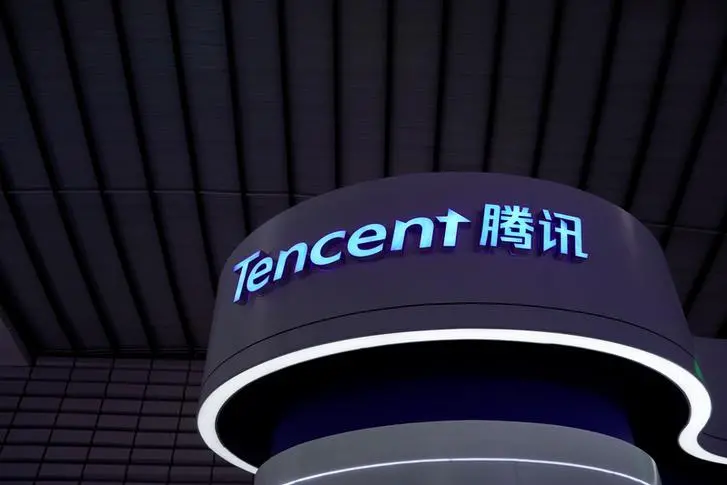PHOTO
(The author is a Reuters Breakingviews columnist. The opinions expressed are his own.)
HONG KONG - President Donald Trump has hit China in one of its softest spots: Tencent. The White House on Thursday said it will block “transactions” with the $687 billion tech colossus. That could cripple its payments-to-messaging app WeChat outside China and put a vast portfolio of overseas investments at risk. The ban could ultimately sting China harder than the campaign against telecoms-equipment maker Huawei.
Beijing has fought hard to protect Huawei’s market share abroad. But Tencent has a more global reach in some ways. It’s among the world’s most prolific technology investors, with a portfolio worth over $60 billion as of December. Its holdings include everything from stakes in Australia’s Afterpay to American online forum Reddit. Tencent’s shares fell as much as 10% following the news.
In video games, Pony Ma’s tech giant controls or holds sizable stakes in developers behind blockbusters including League of Legends and Fortnite. The latter’s creator, North Carolina-based Epic Games, is 40% owned by Tencent, counts KKR as an investor and just completed a fundraising round valuing it at $17 billion. Tencent’s domestic video and music-streaming businesses have tie-ups with numerous American companies, from the National Basketball Association to Warner Music Group. Untangling those deals could be messy and expensive.
Enforcement will likely focus first on WeChat due to concerns over its facilitation of censorship and spying. That would cut off advertising revenue from U.S. brands trying to reach mainland consumers, and politically it would bring home the cost of trade war to ordinary Chinese people perhaps more than anything else. Millions of Chinese students, tourists and workers in the United States will struggle to connect with friends, family and business contacts without the tool – just as foreign expats in China live without access to Google and WhatsApp.
The move will also make foreign capitalists think twice about partnering with companies from the People’s Republic. Beijing has invested a lot of political and economic capital incubating global tech champions, but Washington is now leveraging its regulatory advantages over internet infrastructure and operating systems to contain those ambitions. The White House’s swipe at Tencent could sting for a long time.
CONTEXT NEWS
- U.S. President Donald Trump on Aug. 6 issued an executive order to ban U.S. transactions with China's ByteDance, owner of video-sharing app TikTok, and Tencent, operator of the WeChat messaging app, starting in 45 days.
- The order prohibits “any transaction that is related to WeChat by any person, or with respect to any property, subject to the jurisdiction of the United States, with Tencent Holdings Ltd. (a.k.a. Téngxùn K?ngg? Y?uxiàn G?ngs?), Shenzhen, China, or any subsidiary of that entity, as identified by the Secretary of Commerce (Secretary) under section 1(c) of this order. The Secretary will identify the transactions subject to this prohibition 45 days after the date of the order.”
(The author is a Reuters Breakingviews columnist. The opinions expressed are his own.)
(Editing by Alec Macfarlane and Sharon Lam) ((pete.sweeney@thomsonreuters.com; Reuters Messaging: pete.sweeney.thomsonreuters.com@reuters.net))





















